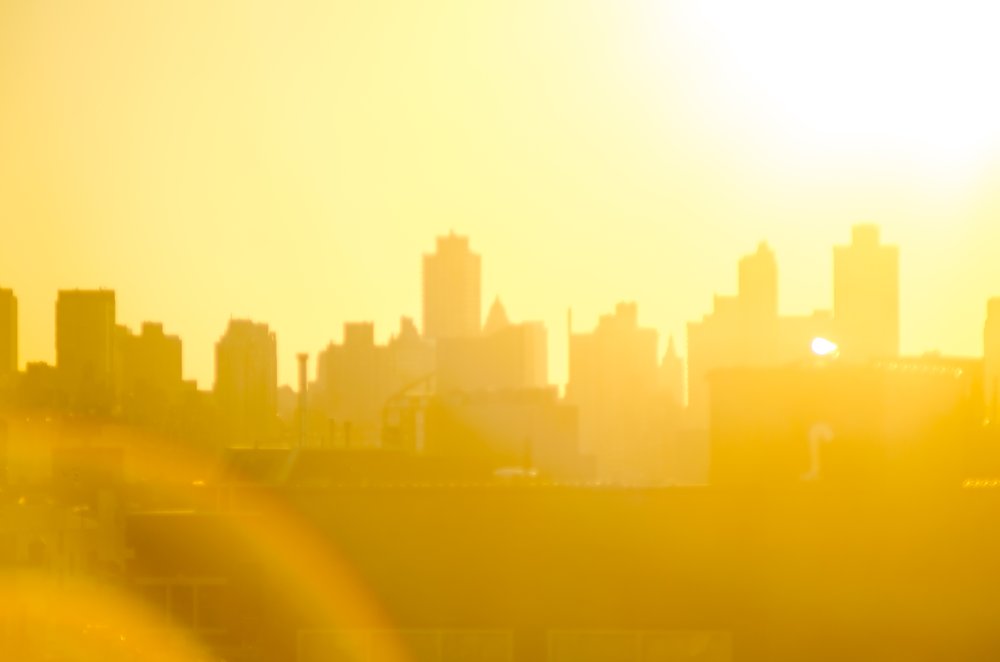'More New Yorkers are going to die' — official warns of rising heat, energy costs
June 4, 2025, 6 a.m.
New York City’s comptroller says a "triple whammy" is driving an affordable energy crisis for New Yorkers.

As New York City starts to warm up, with nearly 90-degree temperatures expected this week, City Comptroller Brad Lander is warning too many residents struggle to pay their energy bills, and that a “triple whammy” of factors could lead to more heat-related deaths.
In a new report published Wednesday, Lander’s office found that 30% of New Yorkers are “energy insecure” — meaning they are unable to meet their energy needs. He said the issue is due to rising energy costs, hotter temperatures from climate change, and funding cuts to federal energy assistance by the Trump administration.
According to the report, which compiled and analyzed prior studies and city data, 3.5 million New Yorkers, or 42%, have fallen behind on utility payments in the last five years. It stated that 1.9 million city residents, or 23%, have experienced utility shutoffs because they could not pay their bills.
Lander said that as the city’s temperatures become more extreme, energy bills will continue increasing and more New Yorkers will be forced to choose between paying for utilities or rent and other necessities.
Last year was the hottest year on record globally, according to NASA. Studies by the nonprofit Climate Central have found the city’s tall buildings, scant tree cover and many vehicles drive up temperatures by nearly 10 degrees.
“People's lives are at stake every year,” Lander said in an interview. “We lose more lives to heat than any other climate catastrophe. Hundreds of New Yorkers have already died from heat emergencies from heat stroke, and if people can't afford their air conditioning, then many more will die.”
According to city health department data, an estimated 580 New Yorkers died prematurely due to extreme heat every year between 2013 and 2022.
Lack of access to air conditioners was the most critical risk factor — 42% of people who died had air conditioners that did not work, while 58% had no air conditioning at all, the comptroller’s office found. Citywide, 11% of New Yorkers don’t have air conditioners at home, and communities of color have the least access to cooling appliances.
In January, utility company Con Edison proposed double-digit rate hikes to the state's Public Service Commission that included an 11.4% increase for electricity customers and a 13.3% increase for gas customers starting on Jan. 1 of next year. The company faced immediate backlash from local elected leaders, advocates and customers, who said ratepayers can’t afford higher bills as New York City continues to endure extreme weather events and affordability challenges that also stem from housing costs and inflation.
Con Edison’s proposal is making its way through the commission’s 11-month approval process where regulators, business groups and consumer and environmental groups weigh in, and final rate hikes are typically lower than what utilities initially seek.
Lander said city officials should directly advocate with the commission to limit any increases, and connect New Yorkers’ affordability concerns with the mounting health risks from extreme weather.
“The city should say, ‘Look, if you give Con Ed these rate increases without any relief, more New Yorkers are going to die, and many more won't be able to afford their bills,’” he said.
In a statement to Gothamist, Con Edison said it supports affordability policies, including an extension of the federal Low-Income Home Energy Assistance Program, or LIHEAP — which President Donald Trump's proposed budget would eliminate.
The company said it also supports vulnerable customers through the Energy Affordability Program, which provides discount on bills for customers receiving certain federal assistance. The program is administered by utilities and is part of the Public Service Commission's Energy Affordability Policy, which aims to prevent households from spending more than 6% of their income on utilities.
A spokesperson for Gov. Kathy Hochul pointed to a letter she wrote in February urging the Public Service Commission to reject Con Edison’s proposal. The governor appoints members to the state regulatory commission, but does not directly have a vote on matters before it.
"At Gov. Hochul's direction, the Department of Public Service, the staff arm of the [commission], is poring over Con Edison’s books to identify ways to cut costs," department spokesperson James Denn told Gothamist by email. "Nothing during the process is taken for granted."
He also stressed that the public comment period for Con Edison's proposal is ongoing.
Denn said the Department of Public Service has proposed an expansion of the Energy Affordability Program to cover more households, but added that since the costs are ultimately borne by ratepayers, "any expansions of the program must be carefully considered to ensure the rate impacts are acceptable."
Landers' report adds that Trump’s proposal to terminate LIHEAP and his plan to end the Energy Star program, which establishes energy-efficiency specifications for appliances, would exacerbate health and economic issues tied to utilities.
Lander recommended that the city pass legislation to secure tenants’ right to cooling as a counterpart to the city’s right-to-heating law mandating that landlords provide tenants heat during the winter. He also called for passage of the state NY HEAT Act, which would end the expansion of gas infrastructure and cap low- and moderate-income New Yorkers’ utility bills at 6%.
Correction: Due to an editing error, this story previously misstated which organization has proposed an expansion of the Energy Affordability Program.